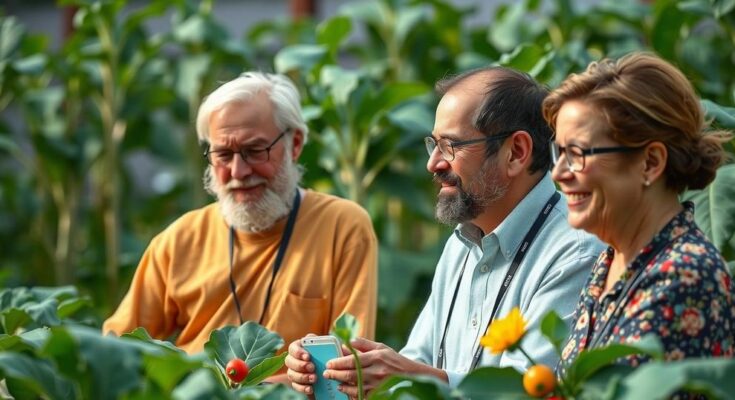Over 150 Nobel and World Food Prize laureates urged increased agricultural research and innovative distribution methods to avert a looming global hunger crisis. They stress the need for transformative efforts and funding to combat food insecurity impacting approximately 700 million people. With climate change and population growth challenging food supply, they advocate for collaborative investments to enhance crop production and ensure future food security.
In a significant call to action, over 150 laureates of the Nobel and World Food Prizes issued an open letter advocating for an urgent increase in agricultural research and innovative food distribution measures. Their objective is to substantially boost crop production to avert a looming hunger crisis, especially as growing global populations and climate change strain food resources. Currently, the persistent food insecurity affects approximately 700 million individuals, underscoring the need for a collective “moonshot” initiative to address impending global food shortages due to anticipated declines in staple crop yields.
The esteemed signatories highlighted alarming projections indicating that by 2050, the world population is expected to increase by 1.5 billion, exacerbating already precarious food security conditions. They brought attention to the declining corn production in Africa, alongside the risk of soil degradation and water shortages globally. The message is clear: without significant investments and transformative strategies in food production, achieving adequate food supply for future generations remains a formidable challenge.
Originating from discussions among food access experts last fall, the letter resonates with optimism amidst daunting predictions. It emphasizes that by amplifying research funding and enhancing food distribution systems, a future free from hunger is attainable. Brian Schmidt, Nobel Laureate in Physics, described the necessity to elevate food production as a critical challenge that can be addressed with focused investment and coordinated leadership. He emphasized, “It is an imminently solvable problem. It is a problem that will affect billions of people in 25 years. It is a problem that to solve it, there are no losers, only winners.”
The letter outlined ambitious strategies to ensure food security, including advancing photosynthesis in key crops, cultivating varieties with less dependency on chemical fertilizers, and extending the shelf life of perishable produce. Cynthia Rosenzweig, a climate research scientist at NASA and World Food Prize winner, stated that while researchers are making strides towards viable solutions, boosted funding and global commitment are crucial for translating laboratory breakthroughs into real-world agricultural applications. Rosenzweig remarked on the importance of a comprehensive support system akin to the efforts observed during America’s lunar endeavors, saying, “Look at how the scientists had to come together. The engineers had to be part of it. The funding had to come together as well as the general public. That base of support has to be there as well.”
In sum, the open letter from Nobel and World Food Prize laureates serves as a clarion call for immediate action to confront the looming global food crisis. With an emphasis on expansive research and effective distribution, they posit that humanity can avert impending hunger challenges while ensuring sustainable food security for future populations. The intersection of technological innovation, collaborative investments, and policy support will be critical in overcoming these challenges and feeding the world’s growing numbers.
The global food security landscape is increasingly precarious, with rising populations and climate change contributing to the challenges faced in food production. Current estimates suggest that approximately 700 million individuals experience food insecurity, highlighting the urgency of addressing agricultural pressure. The open letter from 153 Nobel and World Food Prize laureates emphasizes the need for substantial investments in research and innovative distribution to meet the demands of a burgeoning population, projected to reach 9.7 billion by 2050. Historical precedents indicate that ambitious initiatives akin to the U.S. Moon landing efforts can serve as a model for addressing this critical issue.
The recent letter from over 150 Nobel and World Food Prize laureates poignantly underscores the necessity for an urgent and unified effort to address global food insecurity. By advocating for increased research funding and innovative agricultural strategies, they highlight a path forward that can potentially prevent widespread hunger and ensure sustainable food security. The time to act is now, as the challenges posed by climate change and population growth demand immediate and concerted responses from both public and private sectors.
Original Source: www.detroitnews.com




